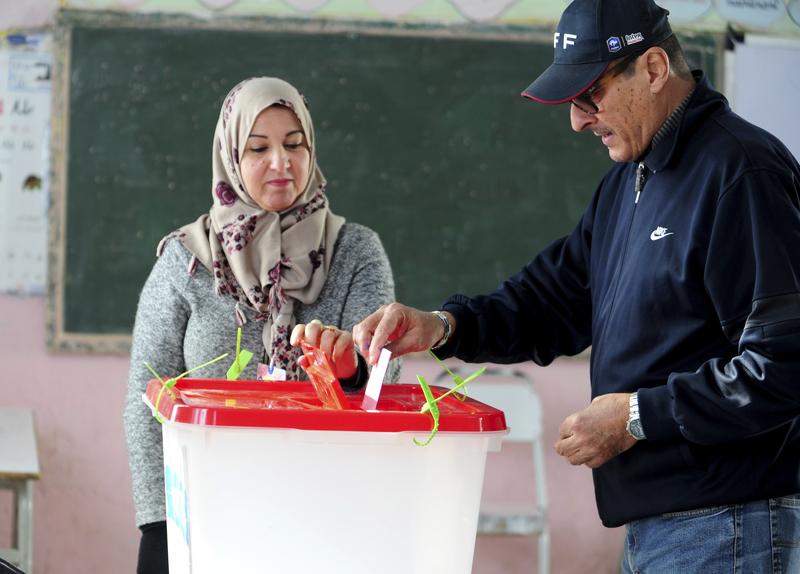 A Tunisian votes in the second round of the legislative elections in Tunis, Tunisia on Jan 29, 2023. (PHOTO / AP)
A Tunisian votes in the second round of the legislative elections in Tunis, Tunisia on Jan 29, 2023. (PHOTO / AP)
TUNIS – The preliminary turnout of Tunisia's second round of legislative elections was 11.3 percent, the Independent High Authority for Elections (ISIE) said on Sunday.
"The turnout in the second round of legislative elections in Tunisia has reached 11.3 percent, as 887,638 out of 7,853,447 registered voters cast their ballots," announced ISIE President Farouk Bouasker at a press conference held in the capital Tunis.
According to Independent High Authority for Elections, the total number of candidates running for this round was 262, including 34 women
Tunisians started voting in the second round of legislative elections on Sunday, with a total of 4,222 voting centers and 10,012 polling stations open from 8 am (0700 GMT) to 6 pm (1700 GMT) local time.
ALSO READ: Tunisian election to entrench president's rule
According to ISIE, the total number of candidates running for this round was 262, including 34 women.
The first round taking place on Dec 17, 2022, witnessed a low turnout rate of 11.22 percent, during which 23 candidates won seats in the new parliament and no one ran for seven seats reserved for overseas constituencies.
It led to the second round of elections to decide the 131 seats in the 161-member parliament.
According to ISIE Spokesperson Mohamed Tlili Mansri, factors such as a change in the voting rules and the absence of partisan support for the candidates might explain the low turnout.
Tunisian President Kais Saied announced on March 30 last year the dissolution of the Assembly of People's Representatives, or the Tunisian parliament.
On April 5, 2022, Saied unveiled new voting rules for legislative elections that the voting will be organized in two rounds, and people will vote for individuals rather than lists as in previous elections.
READ MORE: Polls open in Tunisian election with turnout under scrutiny
The voting was held at a time when Tunisia is facing harsh economic conditions. According to the latest data from the International Monetary Fund, Tunisia's current account deficit amounts to 8 percent of GDP and its gross debt is at a record 89.2 percent of GDP, up from 82.8 percent in 2020 and 47 percent in 2011.
In December 2022, the annual inflation rate in Tunisia increased for the 15th consecutive month to 10.1 percent, the highest in 38 years.
On Friday, Moody's Investors Service downgraded the Government of Tunisia's long-term foreign-currency and local-currency issuer ratings to Caa2 from Caa1 and changed the outlook to negative.


